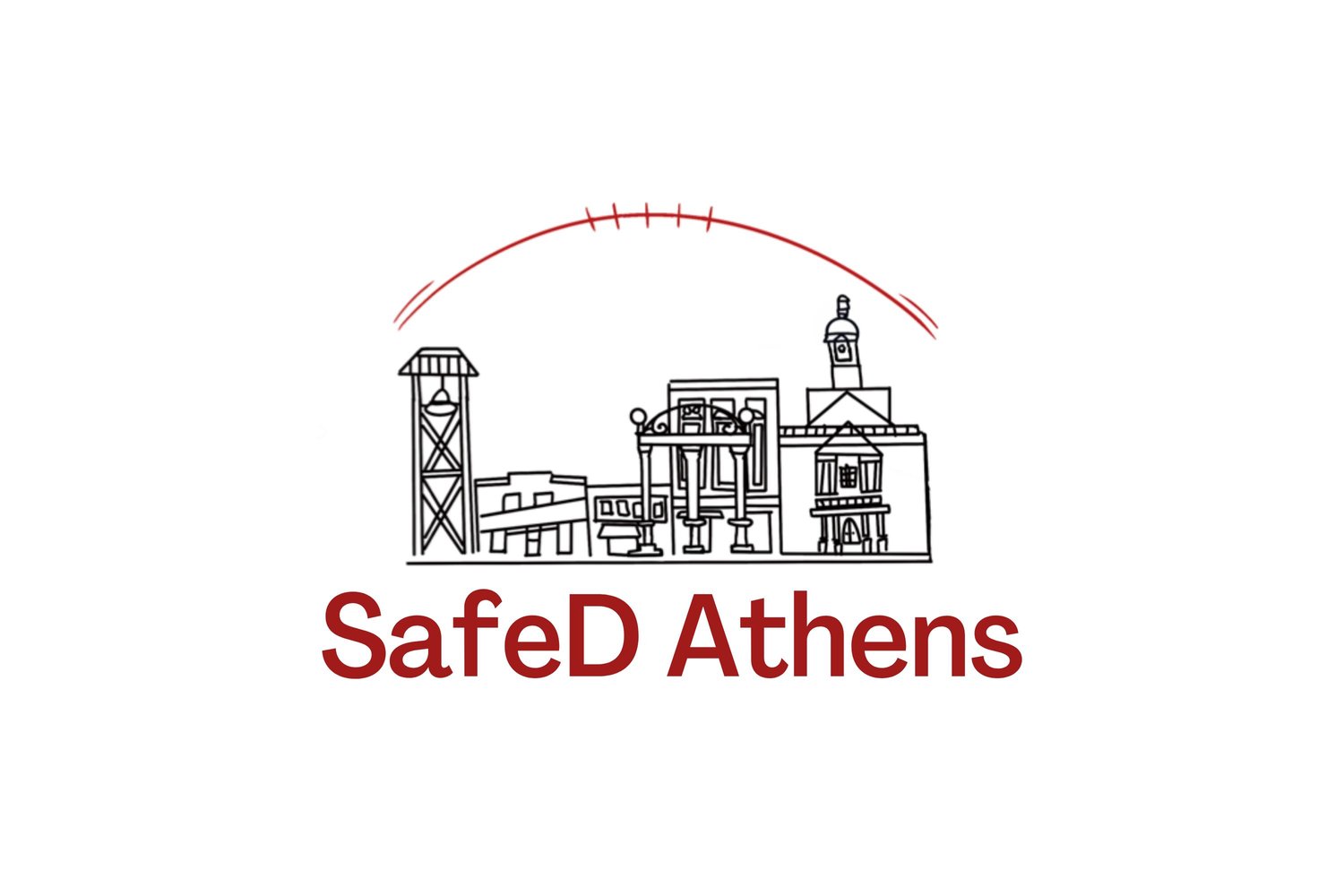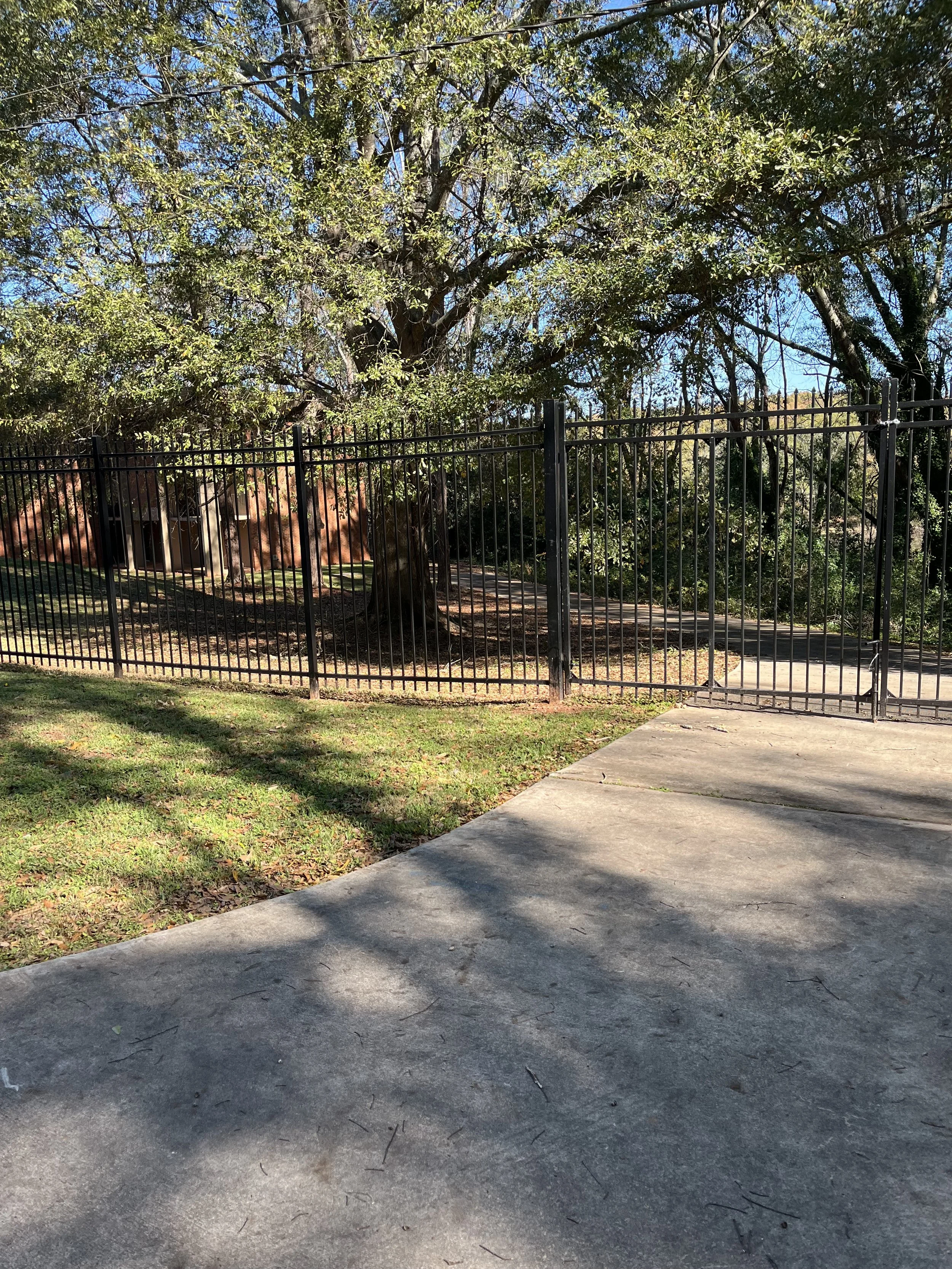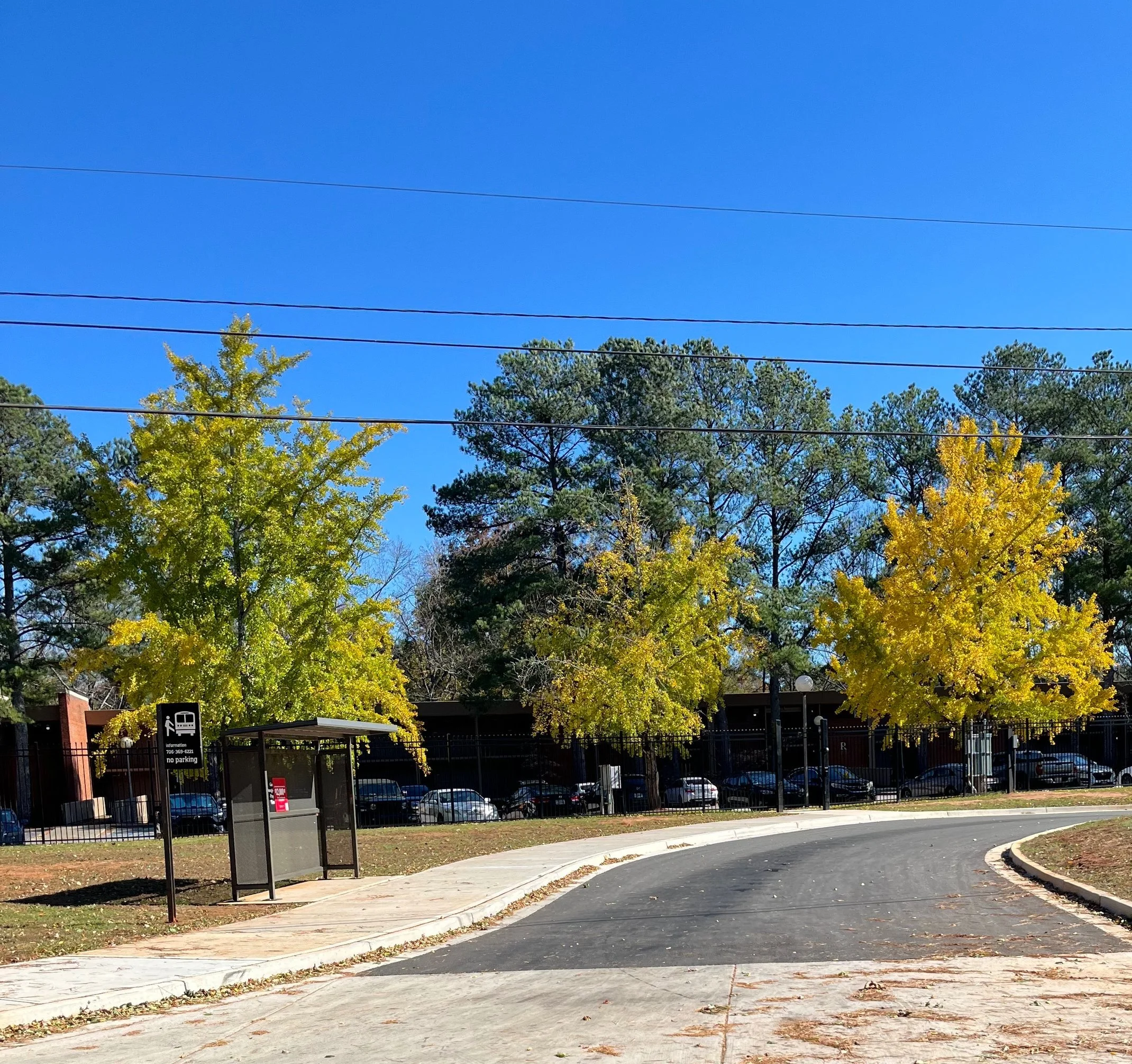Image: Fencing installed after the Peeping Tom incident — would this have deterred Ibarra? Campus-wide CPTED assessment is needed NOW!
Image: Relocated bus stop after old bus stop near Building S was removed—there is no lighting on the new bus stop. It is rather dark at night.—Campus-wide CPTED assessment is needed NOW!
Addressing Gaps in Policy and Technology
Laken’s murder underscores the critical importance of addressing procedural gaps and leveraging modern safety technologies. For instance, the Real-Time Crime Center (RTCC) model, successfully implemented at Georgia Tech and under development by the Athens-Clarke County Police Department (ACCPD), integrates camera footage for strategic officer deployment, real-time intelligence gathering, crime interruption, and rapid suspect identification.
While UGA has pledged to integrate its cameras with ACCPD’s RTCC, there has been no transparency regarding progress. Despite assurances in public forums that a Memorandum of Understanding (MoU) between UGA and ACCPD was forthcoming, our open records request for the MoU has gone unanswered. Parents and students deserve clarity on whether UGA’s participation in this initiative is advancing—and when it will be fully operational.
911 Dispatch Policies: A Matter of Life and Death
Perhaps the most alarming issue is how 911 calls are handled. Laken’s 911 call, made in the critical moments before her death, was not dispatched; the 911 Center’s policy is to not dispatch 911 hang ups from cell phones. Testimony revealed that cell phone 911 calls originating on UGA property are routed to ACCPD. This procedural gap had devastating consequences. It remains unconfirmed whether UGA police—investigating a Peeping Tom and attempted illegal entry roughly 400 yards away from Laken’s location—were aware of her distress call at that specific time.
This tragedy raises urgent questions:
Why was Laken’s 911 call not mentioned in the UGA police report?
Could geolocation data from the call have facilitated a faster response?
How might UGA police have acted differently had they been informed of her call during their nearby investigation?
These are not trivial concerns. They demand transparent answers and an immediate review of dispatch protocols to ensure no emergency call goes unanswered.
Comprehensive Independent Safety and Security Assessments: A Proven Path Forward
We have long advocated for an external, independent security assessment of UGA’s policies, infrastructure inlcuding CPTED (Crime Prevention Through Envionmental Design) and procedures. Universities that have undergone such audits have identified critical gaps and implemented life-saving measures as a result. Security professionals at peer institutions affirm the value of these assessments, noting that even the best teams benefit from fresh perspectives and external expertise.
While UGA’s recent safety improvements are commendable, they do not address every concern. Additional cameras and lighting are essential, but their full potential as crime deterrents and investigative tools cannot be realized without strategic integration into systems like an RTCC. Furthermore, as ACCPD advances cutting-edge technologies for emergency response, UGA’s active participation is crucial to ensure seamless coordination.
A Call for Collaboration, Not Confrontation
SafeD Athens and UGA Parents for Safety and Security have always sought collaboration with the university. Our proposals, informed by research and benchmarking best practices from other institutions, are designed to enhance safety in ways that align with UGA’s stated goals. Dismissing our concerns as unwarranted or reactive ignores the lived experiences of students and families who continue to face preventable dangers.
We urge UGA to embrace this opportunity for meaningful collaboration. By commissioning an independent security assessment and fully committing to proactive safety initiatives, UGA can demonstrate its dedication to protecting every member of its community. Furthermore, we call on UGA to be transparent about its progress and to keep the community informed when improvements are made. Open communication is essential in rebuilding trust and ensuring that students, parents, and staff feel confident that meaningful steps are being taken to prioritize their safety.
Conclusion
The heartbreak of Laken’s murder is a painful reminder of what is at stake. Her family and friends deserve a legacy that ensures no other family endures such an unimaginable loss. Students and parents remain deeply concerned about the current state of safety on campus and cannot accept the status quo when more can be done.
SafeD Athens and UGA Parents for Safety and Security remain resolute in our mission to advocate for change. We will continue to fight for a safer future—one where students and their families can feel confident that every reasonable step has been taken to protect their lives.
Read: SafeD Athens Statement on Ibarra Verdict
Related Stories
UGA adds security measures on running trails where Laken Riley was killed
Laken Riley case: What to know about Jose Ibarra’s murder trial
Five months since Laken Riley's murder, what has UGA done to improve campus safety?
REBUTTAL: To UGA and Dr. Dan Silk (submitted to AJC.com on 11/23/24)
We deeply appreciate the University of Georgia’s acknowledgment of the devastating impact of Laken Riley’s tragic death and their ongoing efforts to improve campus safety. Laken’s loss has left an indelible mark on her family, friends, and our community. We share an unwavering commitment to honoring her memory by addressing preventable gaps that could save lives and prevent future tragedies. While we recognize the investments UGA has made in safety infrastructure and programs, more can—and must—be done. Our advocacy does not suggest that any institution can guarantee 100% safety. Instead, it highlights opportunities to reduce preventable risks through comprehensive safety assessments, collaborative solutions, and policy evaluations. We can approach 100% safety or “zero crime” asymptotically through effective layering of proven safety and security initiatives to mitigate risks and maximize security.
Included in our rebuttal are several initiatives listed below in which we have benchmarked across the country for over three years. Our research, data, and findings have been conducted responsibly, and we are well-informed. Moreover, these safety measures are proactive, designed to prevent crimes rather than merely respond to them after the fact.



